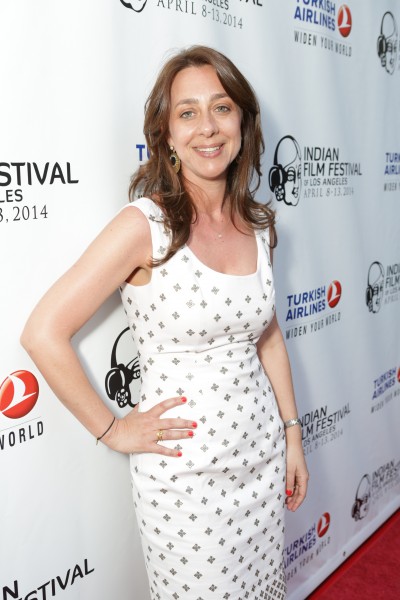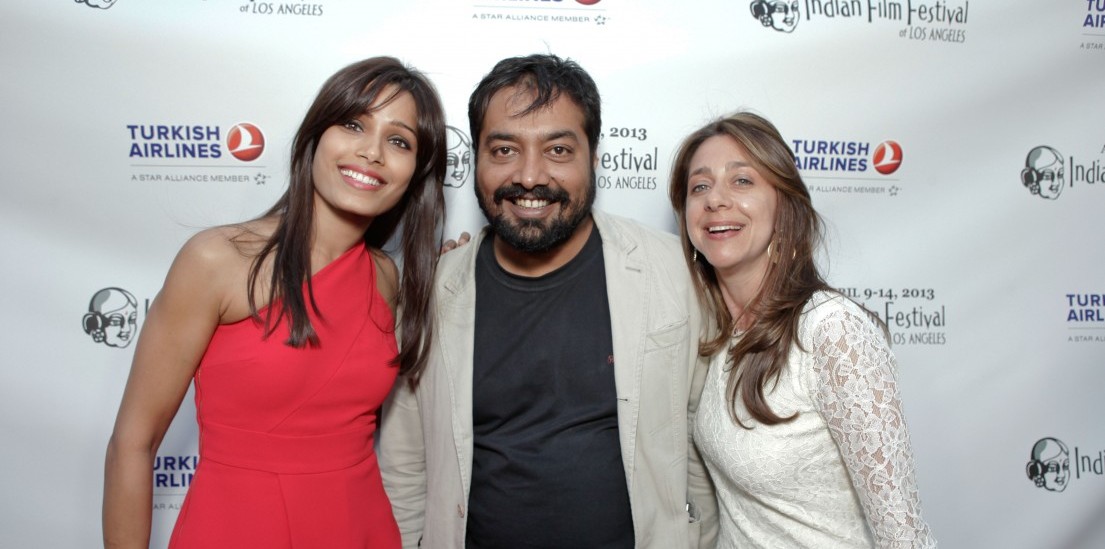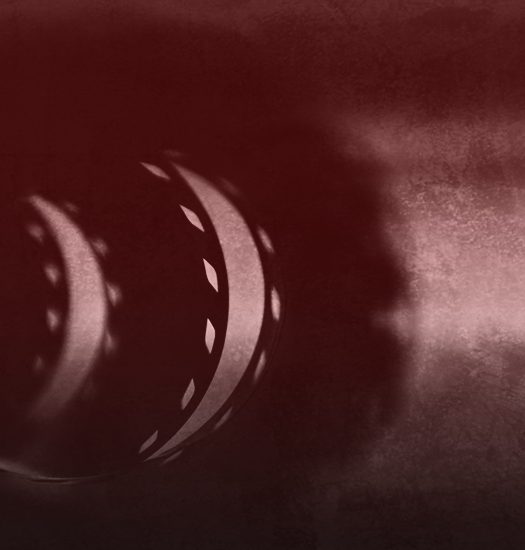IFFLA has a history of identifying new talent – Christina Marouda
Hollywood meets Bollywood and a lot of other great Indian cinema at the Indian Film Festival of Los Angeles (IFFLA) every year. This year is even more special as the festival is being taken by a storm of our strong women-centric films. Films that are not only made by women but by men as well. Talking about this strong female voice and other aspects of IFFLA 2016 is Festival Director and Founder, Christina Marouda. Christina gives us greater insight into this year’s lineup of Indian films and all that one can look forward to at the much-awaited film festival.

Christina Marouda, Festival Director
What is the focus of IFFLA this year?
We normally don’t choose a theme before we see what Indian films are out there. But along the way, as we start programming and reviewing the submissions and start seeing what new films are available to us, certain themes tend to come up. That gives a direction to our programming.
This year we have a number of female voices – a record number of female directors in the features category, which is very exciting, because in the past years, even though we have always had some female directors, they weren’t that strongly present. And so we hope that this is a trend that will continue. There are also films directed by male directors that have women as protagonists, and have touched upon social issues that women deal with. That is something that is very strongly featured in our program. From films like Parched to Angry Indian Goddesses and more, these are all strong female voices of either female directors or male directors who have decided to discuss those issues.
Another characteristic of this year’s programming is a strong lineup of Tamil films. We have three Tamil feature films – Visaranai (Interrogation), Kirumi (Virus) and For the love of a man, which is a documentary. In the last couple of years, we have seen this new wave of Tamil Cinema, coming out of that region and it is very exciting. Last year we had Kaakka Muttai (The crow’s egg) and the same director has written Kirumi this year. The independent scene seems to be very prominent in Tamil Nadu also.
The last thing that I want to mention is that this year we are seeing filmmakers deciding to create bold cinema. We have a number of films from Aligarh and Angry Indian Goddesses to Parched and others, which have all decided to tackle an issue and have done it in a very bold way. Not necessarily didactic, or very strong with a message, but in a way that makes you open your eyes. And I think that is an indication of the change that is in process in the Indian society when it comes to certain issues, like LGBT for an example.
READ: IFFLA ANNOUNCES GALAS AND STELLAR LINEUP
Has it been a deliberate step to choose a lot of films that have been made by female filmmakers?
No, we are always looking for those strong female voices but we are not going to include them in the program just because they are female directors. We respond to the film first and if the film happens to be directed by a female director then it’s great. But we don’t go the other way around. We definitely look for female directors, and this year it just so happened that there were many of them. Most of them are coming to the festival to respond to Q and A and to participate in the festival created for them; it’s just a nice synergy.
Are there any new categories that you have sectioned out in the festival this year?
We don’t have any new categories. We have the features, the shorts, we are doing a screening of Sujata by Bimal Roy, because it is the fiftieth anniversary of his passing. So we’re doing it in collaboration with the National Film Archive of India and Bimal Roy’s Family. And we have the Opening and Closing night galas of course.
Who comprises the deciding panel for the festival?
We have a team of programmers – three main programmers, myself, and another group of three ‘screeners’, as we call them, and the seven of us review all the submissions that come our way. We have a programming adviser in Mumbai – Uma DaCunha who works closely with us. So this group reviews all the submissions and makes the final decisions, but its primarily the three programmers that I mentioned and myself with Uma’s support.

(L-R) Guneet Monga, Christina Marouda, Bela Bajaria
On what basis do you shortlist a film?
It’s a combination of things. Our rules are such that we go a year back – so for the 2016 festival we review films of 2015. They have to, at the very least, be Los Angeles premiers – nothing that has been shown in Los Angeles before. Beyond that we look at the merit of the film and see which films talk to us and what we think will play well with our audience. Also what we look at is a strong voice in terms of the story they decide to tell, how they decide to tell it, the direction, the acting, the script, and how that works as an ensemble. We like to program regional cinema as well, and have always done that. So we look at the program in a very holistic way.
If someone is making his or her debut, we look at the film and see if that filmmaker can be brought into the spotlight, someone the other producers and industry executives should really keep an eye out for. Especially with short films, we have had a number of directors with us, who started with a short film and we identified their talent and they went on to make features and go to festivals around the world. For example, Ritesh Batra was at our festival with a short film and he went on to make The Lunchbox. We have had Richie Mehta, an Indian Canadian filmmaker, who came with a short film and we ended up with his feature later and now he is working with Ridley Scott. We were the first festival to showcase Anurag Kashyap’s Black Friday, when no one was touching that film. So we have a history of identifying new talent and showcasing the very first or second film of those filmmakers who then become more well-known in India or in festivals like Cannes, Toronto or Berlin.
READ: 14TH INDIAN FILM FESTIVAL OF LOS ANGELES
What are your expectations from the festival this year?
We always want the films to play well; we make the selection but it’s up to the audience to decide whether it was a good selection or not. The same thing goes with press and industry executives who come to the festival. We always want to make sure that filmmakers make the best out of their attendance, not just showcasing their films and interacting with audiences, but also being able to connect with industry executives in Hollywood. We make that happen with a couple of programs that we have and also make sure that those connections happen during the festival and are helpful to the future career projects of the filmmakers. And of course it’s always good to receive good press and for the jury to make the right decision. We have these expectations that fall into different categories, but overall the key idea is that our program is well received by everyone and that the filmmakers receive the spotlight they deserve.
How has the festival grown over the years, with regards to its audience and the kind of films that are submitted?
We started in 2003 and since then we have more than doubled our audience and the number of submissions that we receive every year. What also has changed in more of a substantial way is the standards that the festival has and also how Indian cinema is now perceived in the US, in Los Angeles and Hollywood in particular. We have seen that in the beginning it was hard to get Hollywood to pay attention to our films, hard to get film executives to come to the festival, where as now that is no longer an issue. Obviously there is still work to be done, but we get attendance by studios like Disney, Fox, Warner Brothers etc. We also get newer companies like Netflix and Amazon to participate, and there is an excitement and curiosity for Indian cinema. HBO is our sponsor and they have been hosting a filmmakers’ lunch in the past few years because they really want to meet those diverse voices coming out of India. They also sponsor our awards ceremony because they want to see which films are winning. This interest didn’t exist 10 years ago and it exists now and I want to believe that the festival has played a role in it.
READ: DAARAVHA MAKES WAY TO INDIAN FILM FESTIVAL OF LOS ANGELES
What makes IFFLA so special?
A couple of things – one is that we are very filmmaker oriented, whatever we do, we keep the filmmaker in the forefront and make sure that all the decisions are aligned with them receiving the spotlight they deserve. And making sure that they have a very good experience coming to Los Angeles where they meet industry executives because we are in the heart of Hollywood, and that’s what makes it different from other Indian film festivals. Our proximity to Hollywood and the fact that we are able to bring those executives and arrange for one on one meetings with the filmmakers is something you cannot do in any other city. The second feature that makes it special is the fact that we have been doing everything in a serious and strategic way, and not cutting corners even though our budget is limited. We have always taken programming very seriously and very thoughtfully and we have established ourselves as the premier platform for Indian cinema in the US. We started really early on, 2001 is when we started putting together the organisation and had the first festival in 2003 and it was really a festival about Indian independent cinema, it wasn’t just about a diaspora or mainstream films. We were very focused on what we wanted to achieve and that was to create a platform for the best of what Indian cinema had to offer in the heart of Hollywood.



